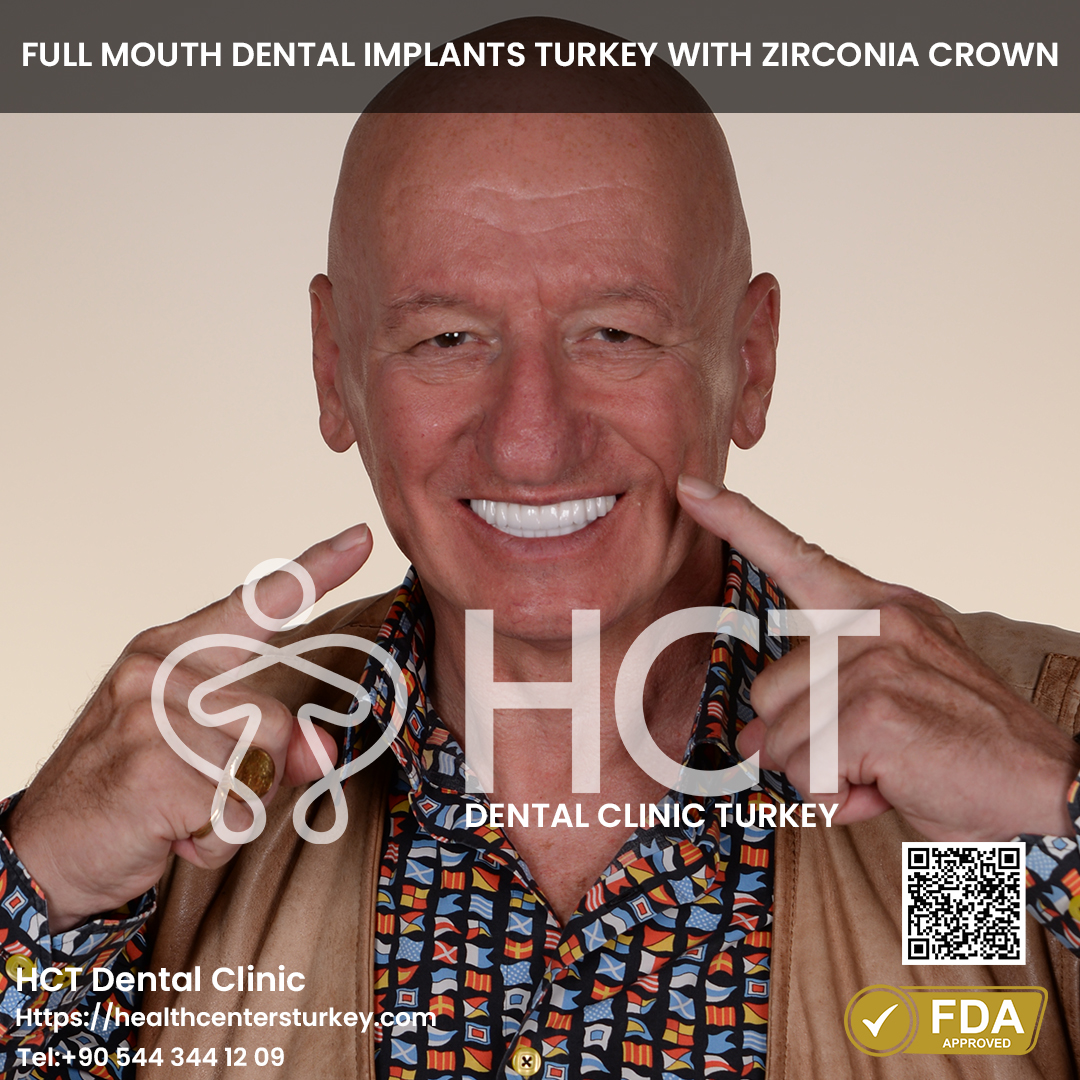Personalized Dental Plans for Your Unique Needs
Personalized Dental Plans for Your Unique Needs
Blog Article
Elevate Your Smile with Creative Dental Practices in Turkey
Dental implants have turn into a popular answer for those trying to replace missing teeth. Understanding how these implants can have an effect on adjacent teeth is important for anybody considering this process, in addition to for dentists and specialists involved in dental care.

One vital aspect is that dental implants are designed to be anchored into the jawbone, which means they are independent of adjacent teeth. Unlike dental bridges, which often require the alteration of neighboring teeth, implants can fill the hole without compromising the health or structure of those surrounding teeth.
This independence helps preserve the integrity of adjacent teeth. When a tooth is misplaced, there can be a natural tendency for neighboring teeth to tilt or shift into the empty area. Such movement can lead to misalignment, which can affect chew and overall oral health. By inserting an implant, you successfully prevent this potential shift, promoting better alignment in the long run.
Highly Rated Dental Treatments for International Patients in Turkey
Additionally, dental implants assist maintain bone density within the jaw. A natural tooth root provides stimulation to the encircling bone, keeping it wholesome and powerful. When a tooth is missing, the bone can start to deteriorate due to lack of stimulation. With a dental implant mimicking a natural root, bone loss can be minimized, which not directly advantages adjacent teeth by preserving the overall structure of the dental arch.
While dental implants are advantageous, improper placement can impression neighboring teeth. If an implant is positioned too close to a different tooth, it could exert undue strain on that tooth, resulting in discomfort or potential injury. Proper planning and imaging techniques are essential for avoiding such points.
Locate Your Ideal Dental Clinic in Turkey for Aesthetic Procedures
Moreover, sustaining good oral hygiene is crucial after receiving an implant. If not correctly cleaned, surrounding teeth could turn out to be prone to dental issues similar to decay or gum disease. This underscores the significance of diligent oral care following the process to ensure each implants and adjacent teeth stay wholesome.
Regular dental check-ups are additionally vital for monitoring the health of surrounding teeth. Dentists can establish any shifts or potential problems early, permitting for well timed interventions. This proactive strategy ensures that each the implant and adjacent teeth can coexist without problems.
Personalized Dental Plans to Fit Your Lifestyle
Another consideration is the impact of implants on chew drive. When a single tooth is missing, the load of chewing may shift to adjacent teeth, probably resulting in wear or strain. Implants restore correct chunk dynamics by redistributing forces in the mouth, which may defend surrounding teeth from undue stress.
Some sufferers may raise considerations in regards to the appearance of dental implants. Well-placed implants can blend seamlessly with present teeth, bettering total aesthetics. In contrast, failing to replace a missing tooth can lead to aesthetic points, together have a peek at this site with collapsing of facial structure and changes in smile dynamics.
It's also value discussing the psychological elements of dental health. Experiencing tooth loss can adversely affect one’s self-esteem and willingness to engage socially. By restoring your smile with implants, you'll find a way to positively affect not only your oral health but also your emotional well-being.
Long-term success of dental implants often hinges on numerous elements, together with the affected person's health, maintenance habits, and the standard of the preliminary process. If adjacent teeth are wholesome and correctly cared for, the chances are they'll continue to thrive alongside the implants.
Tailored Dental Care in Turkey
In conclusion, dental implants play a crucial role in not just restoring individual smiles, but in preserving the health and structure of adjacent teeth. By preventing shifting, maintaining bone density, and redistributing bite forces, implants can ensure that surrounding teeth remain in optimal condition. Proper placement, hygiene, and regular dental visits can further enhance the benefits of dental implants, leading to a healthier, more confident smile for years to come.
- Dental implants can help preserve the alignment of adjacent teeth by offering a steady anchor, stopping adjacent teeth from shifting into the hole left by a missing tooth.
- The presence of an implant could stimulate bone progress within the jaw, helping to preserve the overall structure and integrity of the adjacent teeth.
- Unlike traditional bridges, implants don't require alteration of surrounding teeth, thus preserving their energy and anatomy.
- Implants can improve the distribution of chew forces evenly across the dental arch, reducing the stress on neighboring teeth during chewing.
- A well-integrated dental implant can decrease the chance of bone loss within the area surrounding adjacent teeth, contributing to their long-term health and stability.
- The aesthetics of adjacent teeth can be improved due to the support supplied by implants, which might lead to better total beauty outcomes.
- With correct placement, dental implants can prevent gum recession around adjacent teeth by maintaining sufficient dental structure.
- Implants might help mitigate the risks of periodontal disease in nearby teeth by selling wholesome gum tissue and providing a cleanable floor.
- Long-term success of dental implants can result in improved oral hygiene routines, which in turn advantages the health of surrounding teeth.
- The improved useful ability of an implant can encourage patients to chew extra successfully, thus growing saliva production and aiding within the protection of adjacent dental tissues.undefinedHow do dental implants have an effect on adjacent teeth?
What are dental implants and the way do they work together with adjacent teeth?undefinedDental implants are artificial tooth roots which might be surgically positioned into the jawbone. They provide a steady basis for replacement teeth while guaranteeing minimal disruption to adjacent teeth, preserving their integrity and alignment. Revitalize Your Smile with Innovative Dental Technology.
High-Quality Cosmetic Dentistry Services Available in Turkey
Can dental implants cause problems for close by natural teeth?undefinedGenerally, dental implants don't harm adjacent natural teeth. However, if the implant just isn't placed correctly or if there’s insufficient oral hygiene, it may result in problems such as adjacent tooth decay or gum disease.

Will getting a dental implant change the way my adjacent teeth feel?undefinedMost Bonuses patients report no change within the sensation of adjacent teeth after implant placement. However, it could take a while to regulate to the presence of the implant, much like how one might adapt to other dental restorations.
Can dental implants help preserve the health of adjacent teeth?undefinedYes, dental implants might help maintain the health of adjacent teeth by preventing bone loss that may happen after tooth loss. This preservation helps the alignment of nearby teeth, reducing the risk of shifting or misalignment.
Unveil Your Whitest Smile with Professional Dental Care in Turkey
Do I need to modify adjacent teeth when getting an implant?undefinedTypically, adjacent teeth don't want alteration when putting an implant. This is certainly one of the advantages of dental implants over conventional bridges, which frequently require reshaping adjacent teeth for support.
How does the therapeutic process of an implant affect nearby teeth?undefinedThe therapeutic process entails osseointegration, the place the implant fuses with the jawbone. During this time, adjacent teeth stay unaffected and retain their function, though it’s important to follow post-operative care suggestions. Full-Service Cosmetic Solutions offered in Turkey for a Beautiful Smile.
Discover the Newest Dental Technologies Available in Turkey
Can dental implants lead to bone loss round adjacent teeth?undefinedIf dental implants are positioned properly and cared for adequately, they need to not result in bone loss around adjacent teeth. In truth, they may help stimulate bone progress, combating the natural bone loss that often follows tooth extraction.
What precautions ought to I take to protect adjacent teeth after getting an implant?undefinedRoutine dental hygiene, together with brushing and flossing, along with common dental check-ups, is essential. Avoiding hard meals and following your dentist’s aftercare instructions will also shield both the implant and adjacent teeth.
Is it frequent for adjacent teeth to shift after an implant is placed?undefinedIt's not typical for adjacent teeth to shift after an implant placement, especially when the implant is positioned appropriately and maintained correctly. If there’s any movement, it could be as a end result of other underlying points that should be evaluated by a dental skilled. Report this page